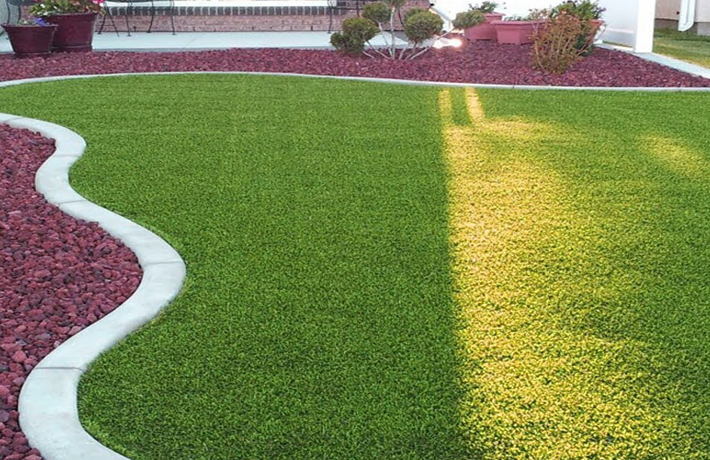
In the lush and green cityscape of Richmond, British Columbia, the debate over natural versus artificial grass has gained momentum in recent years. As homeowners and businesses seek sustainable and low-maintenance landscaping solutions, artificial grass has emerged as a viable option. In this blog, we will explore the pros and cons of artificial grass in Richmond, helping you make an informed decision for your outdoor spaces.
Pros of Artificial Grass:
Low Maintenance:
One of the most significant advantages of artificial grass is its minimal maintenance requirements. Say goodbye to mowing, weeding, and fertilizing artificial turf stays green and pristine all year round with little effort.
Water Conservation:
In a city that values water conservation, artificial grass stands out as an eco-friendly choice. Unlike natural grass, which requires regular watering, synthetic turf helps reduce water consumption, contributing to Richmond's sustainability goals.
Year-Round Greenery:
Richmond's climate can be challenging for natural grass, especially during the rainy season. Artificial grass maintains its vibrant green appearance regardless of weather conditions, providing a lush and inviting landscape all year.
Durability:
Synthetic turf is designed to withstand heavy foot traffic and resist wear and tear. This durability is especially advantageous in areas where natural grass may struggle to thrive due to high usage.
Allergy-Friendly:
For those prone to grass allergies, artificial turf can be a game-changer. Since it doesn't produce pollen, it provides a hypoallergenic solution for individuals who love the look of grass but suffer from allergies.
Cons of Artificial Grass:
Initial Cost:
The upfront cost of installing artificial grass can be higher than that of natural grass. Homeowners and businesses must consider the initial investment when deciding whether to opt for synthetic turf.
Heat Retention:
Artificial grass can absorb and retain heat, making it uncomfortably warm to walk on during hot summer days. In Richmond's occasional heatwaves, this could be a drawback for those who enjoy spending time on the lawn.
Environmental Impact:
While artificial grass saves water, its production involves the use of non-renewable resources and chemicals. Additionally, disposal at the end of its lifespan can pose environmental challenges. Balancing water conservation with environmental considerations is essential.
Aesthetic Variability:
Some people argue that artificial grass lacks the natural aesthetic of real grass. While modern synthetic turf has come a long way in mimicking the look and feel of natural grass, personal preferences may still lean toward the authenticity of the real thing.
The decision to choose artificial grass in Richmond boils down to your individual priorities and values. While synthetic turf offers numerous benefits in terms of low maintenance, water conservation, and durability, it's essential to weigh these against the initial costs and potential environmental impact. By considering both the pros and cons, you can make an informed choice that aligns with your lifestyle and values while contributing to the beautiful, green tapestry that is Richmond.